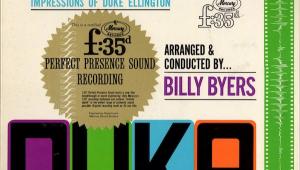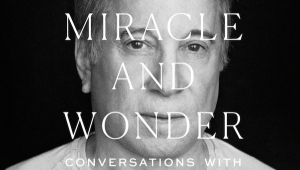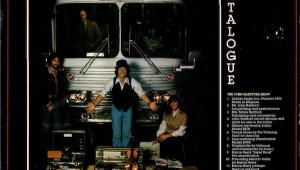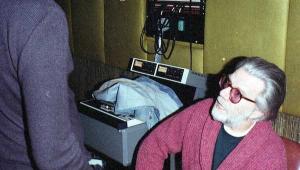A Lawyerly Look at The Beatles Break Up... And More
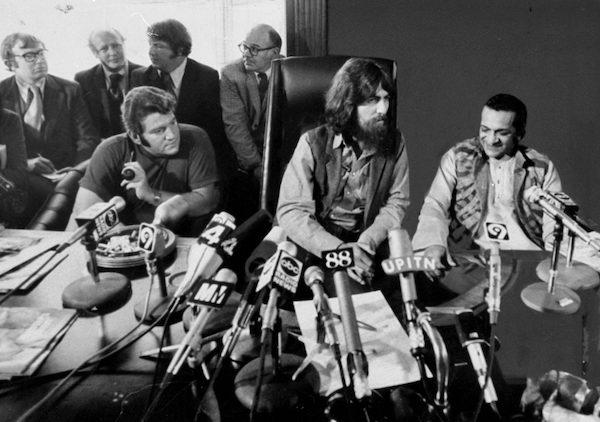
Although Allen Klein and the Beatles’ late manager Brian Epstein were both superlative (if flawed) managers, the two couldn’t have been more different—the well-tailored, scrupulously polite, and almost too-careful Epstein would have been horrified by Allen Klein’s thick sideburns and Brylcreemed hair, which made him look like fat Elvis in a brown business suit. In fact, Klein didn’t just reject the kind of upper-class pretensions which defined Brian Epstein, he played up his less-than-posh upbringing. Upon finally meeting John Lennon (he had been pursuing the Beatle for years), Klein immediately recounted an unhappy childhood marked by his mother’s death and his father’s subsequent decision to place Allen and his sister in a Newark orphanage.
Of course, this piece of biographical data sparked a sense of instant kinship (or perhaps instant karma) in the mind of the similarly parent-deprived John Lennon, the author of the first psychedelic rock song about a Liverpudlian orphanage. John decided that he wanted not just a tough manager, but the toughest, and that man was obviously Allen Klein. After Klein entered the picture, he shook things up at Apple, and put an end to several questionable and wasteful business practices (Klein found expenses for escort services listed in Apple’s books, entered under the category “erections and demolitions”). John Lennon remarked that the hard-nosed American had “swept out all the rubbish and the dead wood [from Apple], and stopped it being a rest house for all the world’s hippies. Klein’s very good.” Lennon became so grateful that Klein had rid Apple of the “hustler” and “spongers,” that he even gave his new manager his famous flowery-yellow psychedelic Rolls Royce as a Valentine’s Day gift.
Although he would come to regret the decision, John Lennon was right to hire Allen Klein—if you were a successful songwriter, Allen Klein was the one you wanted to re-negotiate your record contract— his work for the Stones, the Animals, Donovan, Sam Cooke, Ray Davies, and others demonstrated Allen Klein’s mastery of the concept of creative destruction, as his bullying and threats of litigation blind-sided record executives into tearing up old contracts, which almost always took advantage of the artists, and replacing them with deals which awarded Klein’s clients with substantially greater royalties. Even Paul McCartney, the most resistant to Klein’s involvement in the group’s affairs, consented to the landmark deal Klein negotiated with Capitol Records, a deal which gave the Beatles a higher royalty rate than any other recording act—a full 25% of the wholesale price of each record sold. Stanley Gortikov, an executive with Capitol Records, describing the negotiations and subsequent deal, commented that “O.K. Capitol paid up—but did Klein have to be so hard about it?” Klein had a different view of the matter, saying, “These boys want to work, but you have to motivate them. They won’t work when they’re being screwed by a record company. But when somebody gets rid of the bullshit, and they’re getting a fair deal, they’ll work.”
Sadly, all four Beatles did not work together again. After September 1969, the four Beatles would never even be in the same room together. But their music, with its potential to earn the higher royalties Klein had negotiated, continued to be sold in what proved to be an endless variety of new packages, the first such record being a compilation record entitled Hey Jude followed by the so-called “red” and “blue” albums, all collections of songs not actually chosen by members of the band.
Maybe John Lennon summed it up best when he cagily told an interviewer that “Mr. Klein’s contracts are amazing,” a pointed way of describing the disruptive power of Allen Klein’s way of doing business. Though Allen Klein certainly earned the eternal resentment of both the Beatles and Stones—Keith Richards dryly referred to Klein as a “lawyer manqué,” referring to the never-ending litigation between Klein and the Stones—like Ahmet Ertegun or David Geffen, Allen Klein was one of the rare music industry figures who understood both art and commerce, loved rock n’ roll, and truly lived by rock’s ethos of brazenly breaking the rules, a trait which made Klein attractive to such fellow committed contrarians as John Lennon and Keith Richards.
Allen Klein’s sensitivity to the artist played out in odd ways with George Harrison, who came into Klein’s orbit at a pivotal point in the youngest Beatle’s career: first on the The Beatles (The “White Album”), and then on Abbey Road, Harrison pulled off the seemingly impossible, recording songs that surpassed his mentors John Lennon and Paul McCartney. The always adversarial Klein realized that John and Paul had become George’s rival, a development obvious more recently to all who watched the revelatory Peter Jackson documentary “Get Back” and witnessed the scene when John and Paul responded with a shrug to George’s “All Things Must Pass,” which what should have been the next Beatles classic.
Allen Klein, always one to recognize and then ally himself with the underdog, advocated hard for George, ultimately convincing the senior songwriters Lennon and McCartney to put out George’s masterpiece “Something” as a single—a move which gave Harrison his first Beatles hit, according to Fred Goodman’s definitive biography, “Allen Klein: the Man Who Bailed Out The Beatles, Made The Stones, And Transformed Rock & Roll”, one of the best books about the Beatles’ break-up. With fascinating, almost lawyerly detail, Goodman recounts how Klein assisted Harrison with the groundbreaking Concert for Bangladesh, negotiating a contract with the record company that gave Harrison and his charity 50% of the wholesale price on each album sold, an unprecedented royalty of five dollars an album. (The beautifully packaged, three record box set, which included a 64-page booklet with photos from the concert, retailed for $12.98 in 1971.)
Although he knew that his own presence on the bill was a big draw, Harrison felt that the concert needed the cachet and social justice credentials of his old friend Bob Dylan. Dylan had not performed in several years and was more than a little hesitant. Lawyers could learn a lot from the techniques Klein and Harrison used to gain the resistant and reluctant Dylan’s participation. Analyzing their efforts, it almost seems that Harrison and Klein were using the “good cop/bad cop” method on Dylan, brilliantly switching up the roles depending on the situation. First Klein started at Dylan with song requests, demanding that he draw from his repertoire of protest songs, prompting Dylan to ask whether George was going to play “I Want to Hold Your Hand.” And it wasn’t as though Klein was tactful about his requests either—he reportedly said to rock’s greatest songwriter, “They just want the hits, Bob. Just the hits.”
Making matters worse was the appearance at Klein’s office of the stalkerish Dylan fanatic A.J. Weberman, who was infamous for rummaging through the songwriter’s garbage cans and holding protests outside Dylan’s Greenwich Village apartment in a misguided bid to convince him to return to protest music. After one press conference publicizing the Concert for Bangladesh, Weberman actually followed Phil Spector, George Harrison, and Ravi Shankar onto an elevator.[1] As soon as the elevator door closed, Phil Spector tackled Weberman, struggling with him until a bodyguard removed him from the lunatic rock fan. The appearance of Weberman at Klein’s office no doubt added to Dylan’s reluctance to take part in such a high-profile, widely-publicized event.
Just when the situation with Dylan could not get worse, Harrison interceded with the skills of a master diplomat. A day before the concert at Madison Square Gardens, Dylan told Harrison he was dropping out, explaining “Hey man, you know, this isn’t my scene.” George responded with “it’s not my scene either,” and reminded his friend that the Concert for Bangladesh would be George’s very first solo performance. Seeing that his friend truly needed his support, Dylan relented and even performed his old songs, including “Mr. Tambourine Man” and “Blowin’ in the Wind,” a song he had not performed in seven years.
Although for many this was the essential performance of the concert, Dylan refused to give Klein and Harrison permission to use it in the film “The Concert for Bangladesh”. It didn’t help that during one editing session at midtown Manhattan’s Du-Art studios, as Harrison showed the concert footage to Dylan and his wife Sara, Allen Klein sat in a corner needling Dylan with the repeated refrain, “You look great Zimmy, just great,” much to George Harrison’s chagrin. At the end of the reel, George asked Dylan, “What do you think, Bob?,” hoping he had not wasted Dylan’s precious time. Just when it seemed Dylan was going to veto the project, he said, “It’s great George. Really good,” to which Klein chimed in, “Yeah, Zimmy, it’s great!,” at which point Bob turned and said, “But you can’t use it.”
Later Bob gave his reason to George, explaining (this is a paraphrase), “I look like a spoiled star up there by myself. All the others are playing in the band and I’m up there alone. It’s not a good look.” Reviewing the concert on YouTube, you can see Dylan’s point—while the George Harrison footage shows him sharing the stage with Leon Russell, Billy Preston, and Eric Clapton, looking as if they have created some kind of utopian rock star community, the Dylan footage includes a spotlight that places the focus on him alone.
This time it was Klein’s turn to be the diplomat, and as usual, he was able to win by appealing to Dylan’s nascent rock-star ego: according to Goodman’s biography, Klein invited Dylan to a private screening of “The Concert for Bangladesh” at the magnificent, newly-renovated Ziegfeld Theatre (not the original) in midtown Manhattan, a movie palace whose gold and red interior for many years boasted Manhattan’s largest screen—52 feet across and 20 feet high. As Goodman put in his book, “Dylan liked what he saw and signed on.”
[1] This was not the only Concert for Bangladesh press conference Weberman crashed: after reports appeared in New York magazine and Rolling Stone alleging that he had mismanaged funds meant for the Bangladeshi refugees, Klein held a press conference at his office to respond to these allegations, which a Weberman-led protest group naturally crashed, chanting “You’ll wonder where the money went when Klein runs a charity event.” According to Wikipedia, this piece of agitprop received the notice of none other than John Lennon, who invited Weberman to his apartment and apparently told him that Klein was “ripping us off too.”






